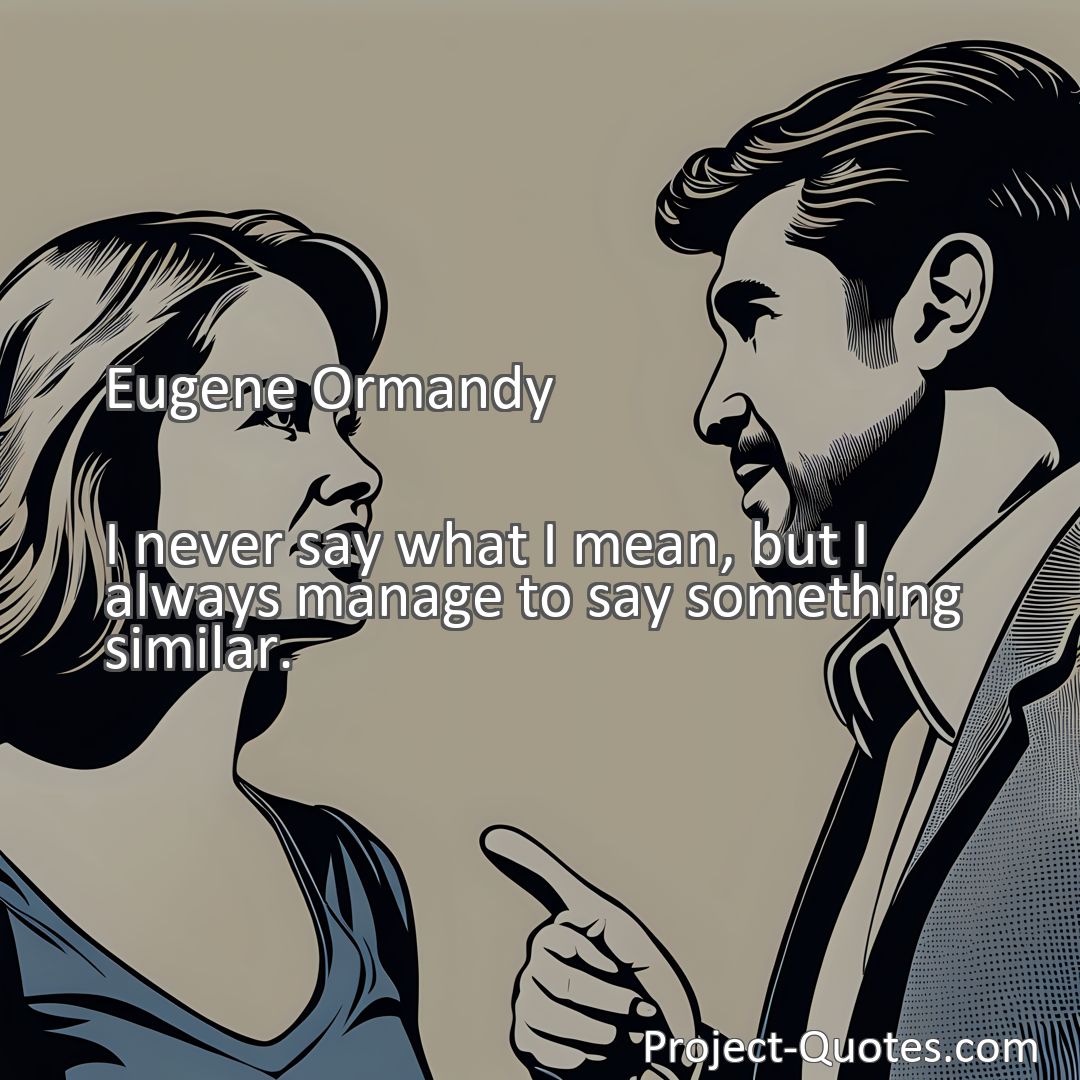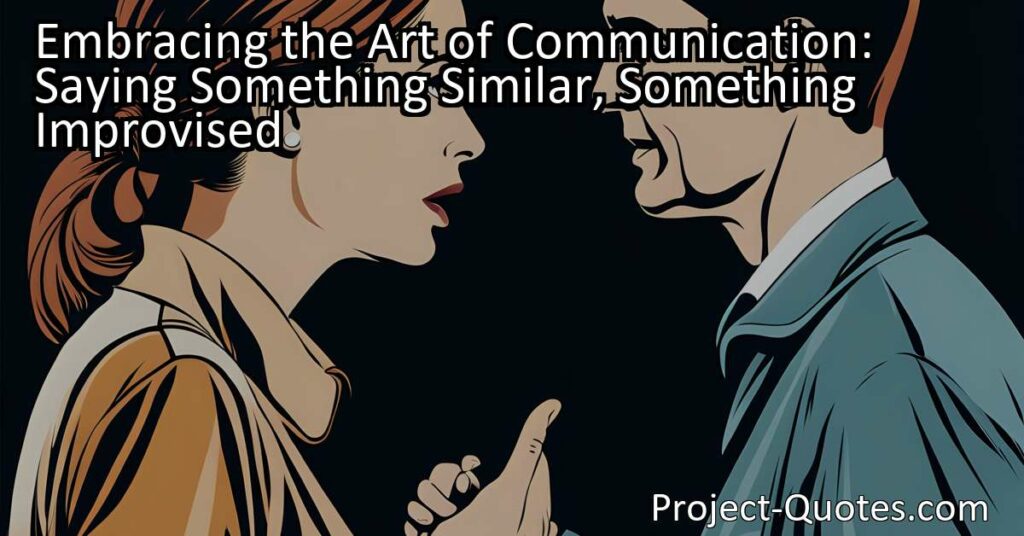I never say what I mean, but I always manage to say something similar.
Eugene Ormandy
Embracing the Art of Communication: Saying Something Similar, Something ImprovisedSometimes, finding the right words can be as tricky as catching a slippery fish. Just like a painter with their brushstrokes, our words may not always come out exactly as intended, but they still manage to convey our thoughts and feelings in their own unique way. Embracing the moments of misspeaking can lead to growth, learning, and creating unforgettable stories along the journey of communication.
Table of Contents
Meaning of Quote – I never say what I mean, but I always manage to say something similar.
Do you ever find yourself in a situation where the words just don’t seem to come out right? Maybe you’re trying to explain how you feel about a new song to your friend, but instead of saying, “This song makes me feel like I’m on top of a mountain with the cool wind in my hair,” you end up saying, “This tune is kind of breezy and high.” It’s like the right words are playing a game of hide and seek with you, and you’re “it.”
Well, even famous people have moments like these! Eugene Ormandy, a famous conductor who led the Philadelphia Orchestra for many years, once said, “I never say what I mean, but I always manage to say something similar.” What he meant is that sometimes, expressing our thoughts and feelings can be as tricky as trying to catch a slippery fish with your bare hands. You reach out and you grab something, but it might not be exactly what you were going for.
Let’s dive a little deeper into what Mr. Ormandy’s words could mean. Imagine you’re painting a picture. You’re trying to show a sunset, with all its beautiful orange, pink, and purple colors. But, when you mix your paints, you end up with a shade thats not quite right. Yet, when you step back and look at your painting, it still gives you that warm, cozy feeling of the sun setting. That’s kind of like saying what you mean, but not exactlyit’s as if your brushstrokes are telling the sunset’s story in their own special way.
When we talk to each other, we’re sort of like painters with our words. We have so many thoughts and feelings inside us, and we use words to paint pictures about those thoughts in other people’s minds. But words, just like brushstrokes, can come out a bit jumbled or different than what we had in our mind’s eye.
You see, language is a bit like a treasure chest filled with all sorts of sparkling words, phrases, and expressions. We dig through this treasure chest every time we speak, looking for the perfect gem to illustrate our thoughts. But, like in any grand adventure, there are times when we grab a handful of coins instead of the jewel we were after. Maybe because were rushed, excited, or we don’t know the exact word that fits. And yet, our message still gets through the doorway of understanding, sometimes even with a sprinkle of charm because we’ve said it in our own unique way.
Eugene Ormandy might have been thinking about the times he was waving his conductor’s wand, trying to pull the most magical music out of his orchestra. He knew the sounds he wanted to hear, the feelings he wanted the music to evoke, and the journey he wanted to take the audience on. But maybe, every now and then, the music that floated up to the balconies wasn’t exactly the notes he had in his head. It was something similarsomething improvised, something spontaneous, and thats what made it special and one of a kind.
In the world of misunderstandings, where words like “similar” swirl around, there’s actually a bit of magic. Think about all the times you’ve laughed with your friends because someone said something a little off, a bit quirky. Perhaps they called a chameleon a “color-changing lizard thingy” because they couldn’t quite remember the word “chameleon.” It wasn’t exactly what they meant to say, but it painted a funny and memorable picture in everyone’s minds.
Ormandys quote can also teach us that it’s okay not to be perfect all the time. We’re all human, and when we try to say exactly whats in our hearts and minds, sometimes it comes out wrapped in a fun, unexpected package. It’s the effort and intention behind our words that matter most.
Remember when you were a little kid, giving gifts to your family? Maybe you wrapped a present in a bunch of newspapers because you couldn’t find the fancy wrapping paper. The gift inside was still the same, it was still special, and your family loved it because it came from you. When we speak, our words are like those giftsthey may not be wrapped perfectly, but theyre given with care and thought.
Think about this, tooevery time we mess up a little with what we say, we get a chance to learn and grow. We might discover new words that fit even better, or we might learn how to listen more closely to what others mean, not just what they say.
So, the next time you find yourself scrambling for words, and they come out playing leapfrog with your thoughts, remember Eugene Ormandy and his idea that it’s all part of the grand symphony of communication. Your words are like music notesthey may not always land where you expect, but they create a melody that’s uniquely yours. Embrace those moments of misspeaking as a part of learning the language and connecting with others. Just like music, it’s not always about hitting the perfect note; it’s about the joy, the fun, and the stories we create along the way.
I hope this quote inspired image brings you hope and peace. Share it with someone who needs it today!


